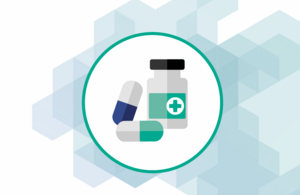MHRA update on new study on risk in children born to men taking valproate
The new safety measures being introduced in UK are for male and female patients

As part of our ongoing monitoring of the safety of valproate, we continue to rigorously review all emerging data. This includes a new study on outcomes in children whose fathers took valproate at the time of conception commissioned by the European Medicines Agency, which has now been resubmitted.
This study suggests there may be an increased risk of neurodevelopmental disorders in children fathered by men on valproate in the three months prior to conception compared with men on other antiseizure medicines.
In the study, around 5 children in 100 born to fathers treated with valproate around conception were diagnosed with a neurodevelopmental disorder. This is compared to 3 in 100 children whose fathers were taking lamotrigine or levetiracetam around conception (two other anti-seizure medicines). This risk is much smaller than the risk associated with valproate in pregnancy.
The revised study results have been received and are being rigorously analysed by the Medicine and Healthcare products Regulatory Agency (MHRA) and independent expert advice will be sought from the Commission on Human Medicines.
Any further guidance will be communicated to patients and healthcare professionals as soon as possible. As a precaution, male patients on valproate who are planning a family in the next year should talk to their healthcare professional about their treatment.
There are no implications of the review of paternal risk for the new strengthened safety measures now being introduced as a result of our rigorous safety review into valproate launched in 2022 which also considered the views of patients and other stakeholders. In November 2023, we instructed health organisations to prepare for new measures that we will be introducing later in January to reduce the ongoing serious harms of valproate.
These new measures mean that valproate must not be started in new patients (male or female) younger than 55 years, unless two specialists independently consider and document that there is no other effective or tolerated treatment, or there are compelling reasons that the reproductive risks do not apply. For the majority of patients, other effective treatment options are available.
No one should stop taking valproate without advice from their healthcare professional. Patients who have concerns should talk to their healthcare professional.
Notes to Editors
-
We have consistently driven the tightening of valproate safety measures with support from our Valproate Stakeholder’s Network.
-
In 2021 we also asked the CHM to undertake a major review of the latest evidence of safety of antiepileptic drugs in pregnancy and we communicated the results to support safer prescribing practices.
-
In 2022, the CHM considered a MHRA review of safety data relating to valproate. This review included prescribing data showing continued use of valproate in female patients and also some use during pregnancy, as well as evolving information about potential risks in male patients. The CHM also considered the views of patients and other stakeholders on the current use of valproate and on how the risks of valproate are currently managed in line with the recommendations from the Independent Medicines and Medical Devices Safety Review (IMMDS). On the basis of the evidence, the CHM has recommended a number of regulatory actions to further strengthen risk minimization measures for valproate which are being implemented in January 2024.
-
In August 2023 we announced that a full re-analysis of the paternal study was required due to errors identified in the study that may impact the results. This re-analysis needed to take place before any final conclusions could be drawn. We have updated the public and healthcare professionals during this process.
-
In October 2023, original pack dispensing was introduced following a public consultation to ensure that the information on the risks of valproate reaches patients.